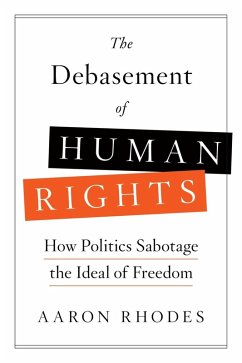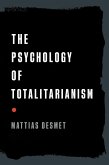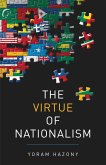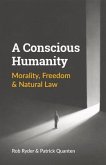The idea of human rights began as a call for individual freedom from tyranny, yet today it is exploited to rationalize oppression and promote collectivism. How did this happen? Aaron Rhodes, recognized as "one of the leading human rights activists in the world" by the University of Chicago, reveals how an emancipatory ideal became so debased.
Rhodes identifies the fundamental flaw in the Universal Declaration of Human of Rights, the basis for many international treaties and institutions. It mixes freedom rights rooted in natural law-authentic human rights-with "economic and social rights," or claims to material support from governments, which are intrinsically political. As a result, the idea of human rights has lost its essential meaning and moral power.
The principles of natural rights, first articulated in antiquity, were compromised in a process of accommodation with the Soviet Union after World War II, and under the influence of progressivism in Western democracies. Geopolitical and ideological forces ripped the concept of human rights from its foundations, opening it up to abuse. Dissidents behind the Iron Curtain saw clearly the difference between freedom rights and state-granted entitlements, but the collapse of the USSR allowed demands for an expanding array of economic and social rights to gain legitimacy without the totalitarian stigma.
The international community and civil society groups now see human rights as being defined by legislation, not by transcendent principles. Freedoms are traded off for the promise of economic benefits, and the notion of collective rights is used to justify restrictions on basic liberties.
We all have a stake in human rights, and few serious observers would deny that the concept has lost clarity. But no one before has provided such a comprehensive analysis of the problem as Rhodes does here, joining philosophy and history with insights from his own extensive work in the field.
Rhodes identifies the fundamental flaw in the Universal Declaration of Human of Rights, the basis for many international treaties and institutions. It mixes freedom rights rooted in natural law-authentic human rights-with "economic and social rights," or claims to material support from governments, which are intrinsically political. As a result, the idea of human rights has lost its essential meaning and moral power.
The principles of natural rights, first articulated in antiquity, were compromised in a process of accommodation with the Soviet Union after World War II, and under the influence of progressivism in Western democracies. Geopolitical and ideological forces ripped the concept of human rights from its foundations, opening it up to abuse. Dissidents behind the Iron Curtain saw clearly the difference between freedom rights and state-granted entitlements, but the collapse of the USSR allowed demands for an expanding array of economic and social rights to gain legitimacy without the totalitarian stigma.
The international community and civil society groups now see human rights as being defined by legislation, not by transcendent principles. Freedoms are traded off for the promise of economic benefits, and the notion of collective rights is used to justify restrictions on basic liberties.
We all have a stake in human rights, and few serious observers would deny that the concept has lost clarity. But no one before has provided such a comprehensive analysis of the problem as Rhodes does here, joining philosophy and history with insights from his own extensive work in the field.
Dieser Download kann aus rechtlichen Gründen nur mit Rechnungsadresse in A, D ausgeliefert werden.









